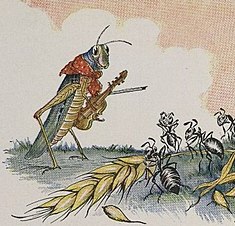"cras amet qui numquam amavit
quique amavit cras amet"
The Magus
"All that is past, possess the present." (311)
Masque - A form of festive courtly entertainment which flourished the 16th and early 17th century Europe, though it was developed earlier in Italy, in forms including the intemedio (a public version of the masque was the pageant).
Pablo Picasso - [Pablo Diego José Francisco de Paula Juan Nepomuceno María de los Remedios Cipriano de la Santísima Trinidad Ruiz y Picasso known as Pablo Ruiz Picasso (Spanish pronunciation: [ˈpaβlo ˈrwiθ piˈkaso]; 25 October 1881 – 8 April 1973) was a Spanish expatriate painter, sculptor, printmaker, ceramicist, and stage designer, one of the greatest and most influential artists of the 20th century. He is widely known for co-founding the Cubist movement and for the wide variety of styles that he helped develop and explore. Among his most famous works are the proto-Cubist Les Demoiselles d'Avignon (1907) and Guernica (1937), a portrayal of the German bombing of Guernica during the Spanish Civil War.
The enormous body of Picasso's work remains, and the legend lives on—a tribute to the vitality of the "disquieting" Spaniard with the "sombre…piercing" eyes who superstitiously believed that work would keep him alive. For nearly 80 of his 91 years Picasso devoted himself to an artistic production that contributed significantly to and paralleled the whole development of modern art in the 20th century.
Picasso's art from the time of the Demoiselles was radical in nature, virtually no 20th-century artist could escape his influence. Moreover, while other masters such as Matisse or Braque tended to stay within the bounds of a style they had developed in their youth, Picasso continued to be an innovator into the last decade of his life. This led to misunderstanding and criticism both in his lifetime and since, and it was only in the 1980s that his last paintings began to be appreciated both in themselves and for their profound influence on the rising generation of young painters. Since Picasso was able from the 1920s to sell works at very high prices, he could keep most of his oeuvre in his own collection. At the time of his death he owned some 50,000 works in various media from every period of his career, which passed into possession of the French state and his heirs. Their exhibition and publication has served to reinforce the highest estimates of Picasso's astonishing powers of invention and execution over a span of more than 80 years.]
Collective Unconscious - [Collective unconscious is a term of analytical psychology, coined by Carl Jung. It is proposed to be a part of the unconscious mind, expressed in humanity and all life forms with nervous systems, and describes how the structure of the psyche autonomously organizes experience. Jung distinguished the collective unconscious from the personal unconscious, in that the personal unconscious is a personal reservoir of experience unique to each individual, while the collective unconscious collects and organizes those personal experiences in a similar way with each member of a particular species.]
(great mythical baggage that you carry)
-------------------------------------------------------------------------------------------------------------
There is a zone of your own conscious, that only you can create, invent, etc..
-------------------------------------------------------------------------------------------------------------
Is that a gun in your pocket? Or are you just happy to see me? ;)
Mae West
- She was a devouring female; she gives them a good time then she would devour them.
Did you know?
- That everyone is a character in their own little world, this world. We are apart of everything in this world. We are all connected.
Ultimate reality - Every moment is connected as is apart of the sacred. Everything we say and do is sacred.
Taoism - 天人相应 - Refers to a philosohpical or religious tradition in which the basic concept is to establish harmony with the Tao (道), which is the mechanism of everything that exists.




